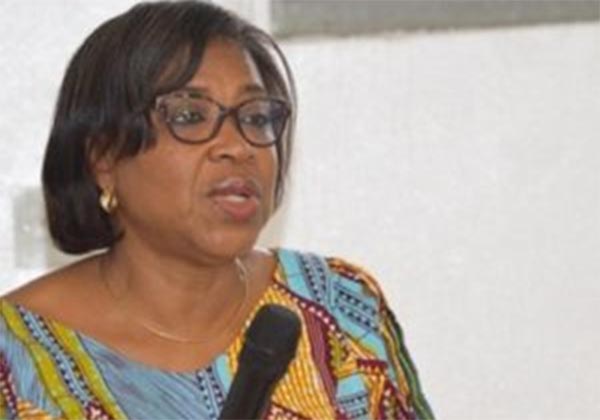- Investments in Sukuk, Green Bond will boost financial inclusion, explains DMO
Nigeria’s aggregate public debt grew 12.25 per cent or N2.66 trillion year-on-year as at December 31, 2018, totalling N24.387 trillion ($79.437 billion), compared to N21.7 trillion posted over the same period in 2017, the Debt Management Office (DMO) has revealed.
A breakdown of the debts showed that external debt stood at N7.759.23 trillion ($22bn), while domestic component stood at N16.627.84 trillion ($56bn).
The DMO’s Director General, Ms. Patience Oniha, who briefed journalists in Abuja, said the debt figure comprised those owed by federal, states and Federal Capital Territory administrations.
She disclosed that the share of domestic debt dropped to 68.18 per cent from 73.36 per cent as at December 31, 2017 thereby achieving a mix of 68.18 per cent and 31.82 per cent in the debt stock.
Of the total debt stock, Oniha disclosed that the federal government loans accounted for 78 per cent of the figure, while states and the FCT accounted for 22 per cent, adding that the federal government has an external debt stock of N6.4 trillion while the domestic component stood at N17.11 trillion.
According to her, this brings the federal government’s debt profile to N19.23 trillion.
Similarly, she said the states and the FCT have external debt of N1.25 trillion and N3.85 trillion domestic debt, or a total of N5.15 trillion.
Giving further breakdown, Oniha said that the federal government’s domestic debt stock comprised N331.12 billion Promissory Notes issued to oil marketing companies and state governments in December 2018, noting that the government’s debt strategy of exploring external funds was achieving the expected objectives, some of which were to freeing more space for other borrowers in the domestic market.
“Other objectives are to extend the average tenor of the debt stock in order to reduce refinancing risk and increase external reserves,” Oniha said.
“The share of domestic debt dropped to 68.18per cent from 73.36 per cent as at December 31, 2017 thereby achieving a Mix of 68.18 per cent and 31.82 per cent in the Debt Stock. According to the DMO the strategy of using relatively cheaper and longer tenored external funds is achieving the expected objectives. Some of the Objectives were: to create more space for other borrowers in the domestic market, extend the average tenor of the debt stock in order to reduce refinancing risk and increase External Reserves.
“The implementation of the strategy led to an injection of N855 billion through the redemption of Nigerian Treasury Bills in 2018 and a general drop in the FGN’s borrowing rate in the domestic market from over 18 per cent p.a. in 2017 to 14 – 15 per cent p.a. in 2018,” she added.
According to her, some of its major plans in 2019 are to undertake more of project-tied borrowing and access more external borrowing from concessional sources, stressing that the DMO announced plans to issue 30-year federal government of Nigeria Bonds (FGN Bonds) for the first time.
“The issuance of the Bond will meet the needs of annuity funds and other long term investors while also developing the domestic capital market and reducing the re-financing risk of the FGN. Another area of focus will be the management of Risks associated with the Debt Stock to mitigate debt service costs.
“Another area of focus will be the management of risks associated with the debt stock to mitigate debt service costs,.” she said, adding that this is captured in the 2019 budget proposal before the National Assembly.
On the deficit of N1.649 trillion in the 2019 budget, she said the federal government would borrow N824 billion of the amount borrowed domestically through federal government Bonds, Sukuk, Green Bonds and Savings Bonds.
The other N824 billion is expected to be financed externally from concessional sources as they are cheaper and are longer-termed funds for infrastructure, she added.
Oniha said that the planned N15 billion Green Bonds and the infrastructure bonds would be issued in the second quarter of 2019.
Investments in Sukuk, Green Bond will Boost Financial Inclusion, Says DMO
Meanwhile, Oniha has stated that the administration of President Muhammadu Buhari is currently promoting investments in Sukuk and other green bonds to promote financial inclusion as well as reduce poverty in the country.
Speaking in Abuja at the second edition of the Sigma Pensions Business Roundtable, themed: “Navigating the Frontiers of Ethical Investing”, she noted that previous experience from the issuance of two Sukuk bonds, which were oversubscribed had been beneficial, and further stressed the need for the investment base for ethical products to be broadened.
The DMO boss said: “The experience from the issuance of Sukuk bonds has been beneficial to the government.
The Sukuk is one of the landmark achievement not only in terms of fund but the projects being implemented”.
“We will like to do more with Sukuk because it’s transparent but the major issue for us now is to increase the investor base for ethical products,” she added.
Source: THISDAY












